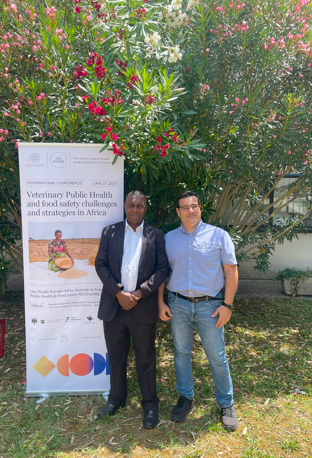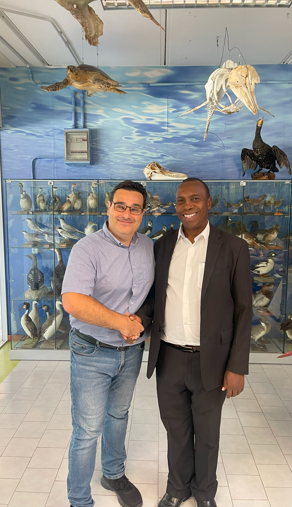“Zoonotic diseases cannot be tackled by one profession alone. We need diverse perspectives and true collaboration.” Prof. Clovice Kankya

A simple yet powerful idea: addressing today’s and tomorrow’s health challenges through a shared approach between Europe and Africa. This is the heart of NextAfrica, one of the six seed-funded projects under the Una Europa–Africa Partnership Seed Funding scheme. The project is hosted by the One Health Cluster at the University of Bologna and aims to foster collaborative solutions to global health issues across the two continents.
At the center of the initiative are two authoritative voices that represent the transdisciplinary nature of the project: Professor Alessandro Seguino, from the Department of Veterinary Medical Sciences at the University of Bologna, and Professor Clovice Kankya, from Makerere University in Uganda, a leading expert in epidemiology and public health.
Professor Seguino brings over 25 years of experience in public health, both academically and institutionally, in Italy and the UK:
“With NextAfrica, we aimed to build a network that combines European and African expertise to address food safety, epidemiology, and public veterinary health challenges together.”
Professor Kankya, on the other hand, explains how his personal and professional experience led him to search for interdisciplinary solutions to the pressing health needs of African communities:
“In our context, it is essential to tackle health issues at the source. Emerging zoonoses must be addressed through collaborative efforts among veterinarians, doctors, engineers, social scientists.”
One of the key pillars of NextAfrica is the mobility of African postgraduate researchers, who participated in a series of workshops in Bologna, engaging with European experts across various disciplines—from conservation medicine to food safety.
“I was impressed by the energy and insight of the young African researchers. They bring real-world experience that helps us view global problems through new lenses.” – Prof. Seguino
But the exchange is not one-way. Professor Kankya highlights how the experience in Bologna is just the beginning of a long-term partnership:
“Our discussions have already led to a memorandum of understanding between our universities. We want to build joint PhD and master’s programmes, co-develop curricula,and even create an African College of Veterinary Public Health.”

NextAfrica builds on earlier initiatives like NextVET, but represents a significant evolution from educating European students to establishing a transcontinental community of researchers, with a specific focus on African priorities.
“This is not an isolated initiative. Our goal is to build a lasting network operating in research, education, and policy impact.” – Prof. Seguino
The project also aligns with the African Union’s Food Safety Strategy, supporting applied research that can positively affect the health of people, animals, and ecosystems.
NextAfrica is more than a project it is a replicable model of academic cooperation, based on mutual understanding, shared goals, and respect for diverse perspectives. The dialogue between the Global North and South is not just desirable—it is essential.
“I will take these experiences back to Uganda, sharing them with students, colleagues, and professional associations. This is how we build a healthier, more equitable, and sustainable future.” – Prof. Kankya